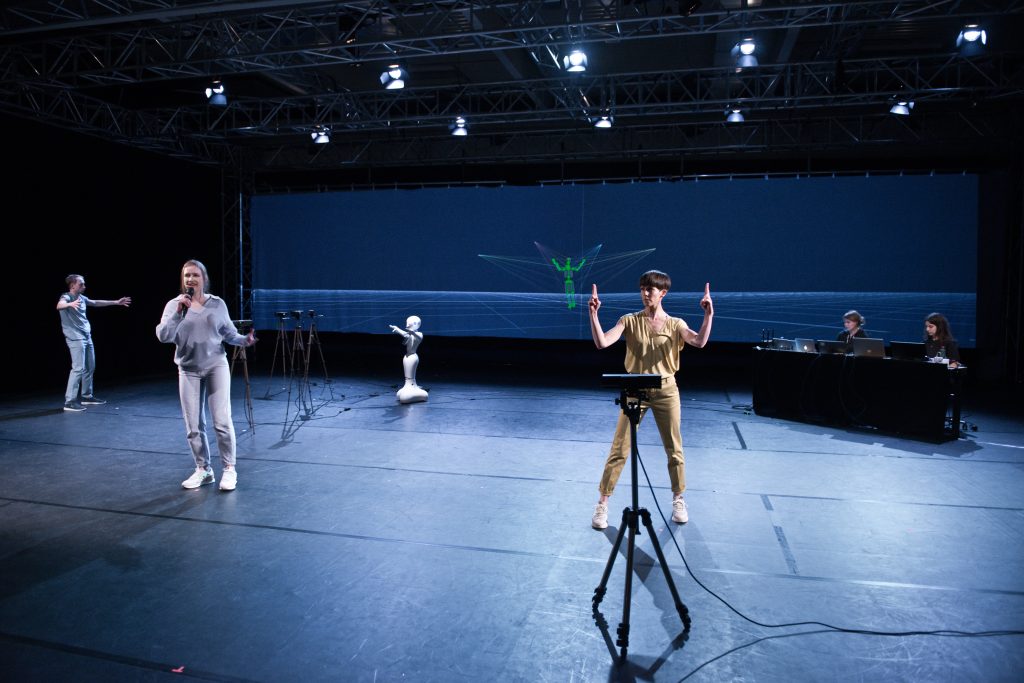Presenting our arts-based research & development of our DANCR-tool and our AI’s, @ the Faculty of Dance at MUK (Music, and Arts University of Vienna)
We are happy and honored to have the opportunity to present and discuss our DANCR-tool with the stage artists from MUK!
DANCR-tool is a critique of AI development through the development of AI for strictly artistic means. We work with contemporary dance becouse we love it, but also as it is especially tough for AI to handle it.
Our DANCR-tool is now developed up to the the third prototype of our improvAI. The next step is to sound the potential of the DANCR-tool and both AIs, the improvAI and die transferAI. Second next, we will refine both our AI’s by our multi-modal data approach.
This is the perfect moment to receive an invitation from the leader of the degree program dance, Nikolaus Selimov, at MUK, to their stage arts and AI initiative. MUK https://muk.ac.at
Presenting the DANCR-tool
At first we gave a swift glance over the whole of the tool with a focus on its output. This is followed by presenting the use of DANCR with its AI’s by means of its application in developing the choreography and the staging of our performance youAI: train, adapt, perform.


Our work is driven by criticism and the development of theory in philosophy, politics, architecture, and spatiality. We took what we learned in those years through the production of our technology and the experiences made to experiment and work towards our own AI-system.


One hour is too short to present the whole of the DANCR-tool. But we could show the output side of the tool with the generative AI, our improvAI.

The DANCR-tool is a digital system, including two AI-systems, the improvAI and the transferAI. It allows for radically individualised data-retrieval of sets of small-data and the production of numerous AI-models individually trained by one artist only; and more, details are seen here. ©Armin Bardel
Final discussion

On stage from H.A.U.S.:
Eva-Maria Kraft Choreography, dance
Christoph Hubatschke Philosophy, Political science
Clara Haider Robot supervision, programming, control
Oliver Schürer Theory of technology, architecture, and spatiality